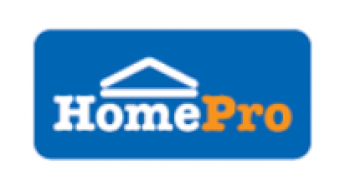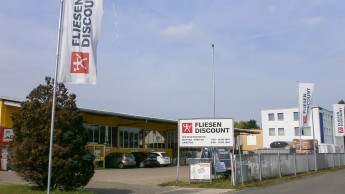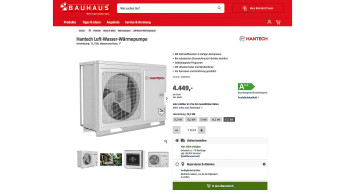
deep insights, facts & figures
02.03.2012
The economic situation in Greece is catastrophic. What does that really mean for the DIY market?
In recent years the DIY and home improvement sector has exhibited remarkable growth in Greece. It is not just the fact that consumers have come to realize that it can make their lives more pleasant and practical and so improve their daily reality. There are also compelling financial reasons that encourage a "do-it-yourself" mentality. Can these dynamics, however, be released in the environment of deep economic crisis that now prevails in this Mediterranean country? Data originating from the local market gives a positive answer to the above question. Besides the very significant "value for money" quality which characterizes this particular market there is one more element that is very negative, but simultaneously very positive for the sector: the construction industry. Prior to the crisis, DIY and building product manufacturers relied on construction activity, which absorbed the vast majority of the total sales volume. Inevitably, therefore, these companies saw DIY as an investment for the future. The crisis, however, has brought that future to the present. So the sharp drop in construction activity is serving to reinforce renovation, repairs and general DIY. Consequently both the underlying dynamics and the market outlook remain potentially unaffected and at a high standard. Consumers should feel both inspired about what they are attempting and certain that specialists will be by their side to provide help. This sector needs creative proposals based on in-store promotions, interactive contact with potential DIYers and advisory or even educational advertising in print. Τhe 6th Annual DIY and Home Improvement Conference, organized by Karydakis Publications in November 2011, presented some interesting figures. According to these, the parameters of a one per cent rise in consumers’ income result in an increase of 1.6 to 1.8 per cent in the amount available in the market. And, moreover, the modern redesigning of product packaging and artistic interventions in selling points are capable of increasing sales by over five per cent. Significant potential for growth is evident in the product category of plaster board: the figure for its consumption in Greece amounts to one m² per capita, while for the rest of Europe the figure is seven m² per capita and twelve m² per capita in America. Additionally, the profile of the Greek consumers engaging in DIY activities that make up the target audience for big-box stores and neighbourhood hardware shops was illustrated by a recent survey conducted by GfK Hellas from a sample of 659 individuals on behalf of "Hardware Store", a Greek magazine. The most important conclusion, perhaps, has to do with the way DIY has penetrated Greek society. So 90 per cent of those asked the question of whether they have been involved with DIY during the last 12 months gave an affirmative response. Of course at this point an explanation for this impressive figure is found in the answer about the tasks preferred by the Greek public, which reveals what is considered to be DIY. So, in order of preference, DIY for the Greeks is wall decoration, garden work, seasonal decorating, general repairs, painting interior walls, assembling furniture, minor construction or handicrafts, hanging curtains or blinds, electrical work, putting up shelves, painting exterior walls, plumbing work, making furniture, building work, and laying tiles. According to the survey data, 55 per cent of this public are women and 45 per cent are men. About 70 per cent of these live in a house more than 120 m² in size and 57 per cent of them have outdoor areas. About 45 per cent belong to the middle socio-economic class and 68 per cent are married or cohabiting. When it comes to the sources of information and education that this public taps into, the most important are their friends and relatives, magazines, the internet and professional craftsmen. The survey highlighted the opportunities offered by this market, as 30 per cent of those questioned reported that they intend to increase their DIY activities, 56 per cent will maintain their present rate, while 25 per cent are positive towards taking up such activities. The survey reached four basic conclusions: 1. Greeks now actually practise DIY. 2. DIY is a pleasant and affordable escape in an environment of financial uncertainty. 3. Women are and will be a very decisive factor in DIY. 4. A shift towards the consumer is the only available route. Although Greece still has some way to go in order to reach the levels of "maturity" of the DIY markets in other European countries, the fact that large technical department stores have been on the increase over the last two years in this Mediterranean country shows that DIY has started to acquire its proper dimensions in the Greek market. Equally encouraging results were also shown by the annual survey on tools conducted in 2010 through www.mastoremata.gr. It gathered important findings on the way that Greek consumers/tool-users regard companies and their products. More specifically, participants who were part of a wide age group (with 35.9 per cent coming from the ages of 26-35) prefer the internet as their primary source of information about tools (46.7 per cent), followed by magazines with 37 per cent. The qualitative data of the survey included the answers to the question of whether participants intended to purchase a power tool in 2011: here 72.9 per cent stated that they would definitely or almost definitely purchase one. This percentage, in conjunction with the 34.8 per cent who answered that they purchase power tools every year, is sufficient to demonstrate the dynamics exhibited by DIY in Greece. Lately something has started to change in consumers’ behaviour. They buy less and experiment more. The number of people who wish to be creative is increasing. And what could be a better canvas on which to "play" than one's favourite things that one might want to modify and transform? DIY is the new Greek must, and has much to offer. Both to consumers who take up a hobby so as to spend their time more creatively, at the same time saving money, and to the supporting sector, which provides these possibilities for consumers while simultaneously discovering opportunities hidden inside the crisis. Big boxes in Greece The German companies Götzen and Praktiker were the first to enter the Greek market. Since the first opening in 1991, Praktiker has accumulated a total of 13 stores in nine cities. Most recent were the openings in Heraklion in Crete (2010) and Xanthi (2011), while scheduled for the first quarter of 2012 is the opening of one more new store in Alexandroupolis. The French DIY retail chain Leroy Merlin opened its first Greek outlet in 2007 in Athens, followed by one in Thessaloniki (2008), as well as one each in Athens and Larissa in 2009.
Related articles
Read also

 Menü
Menü















